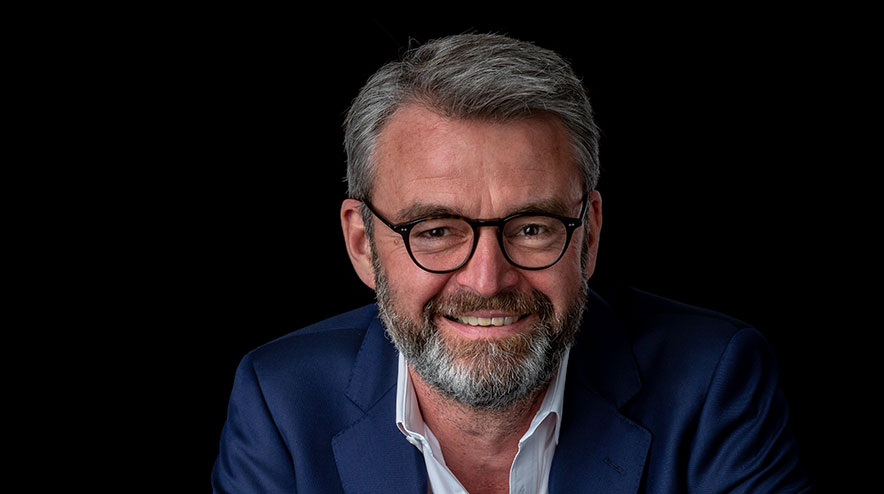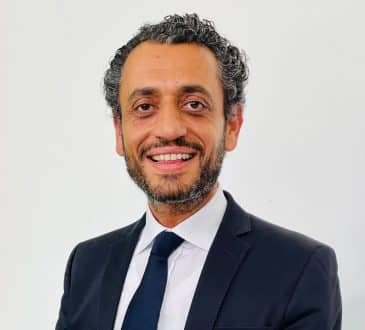Why you may be more future-fit than you think

Lars Lehne of Incubeta argues that the most critical changes in business are the ones we made before 2020 .
I’m not one to make big bold predictions. I’ve been playing this game too long to not know better. If there’s one thing being a business leader in tech teaches even veterans like me, it’s that the future belongs to the open-minded. It’s a natural human instinct for us to want to look ahead and imagine a world when the fall out of the pandemic is behind us. But by focussing too much on what’s ahead, we lose the wisdom we can gain by taking stock of what’s happening now.
So, what can we learn from …. well: what we’ve already learned?
For one thing, horrendous as these last 18 months have been, I’ll stick my neck out and say we can count ourselves lucky in two important respects: the technology we had available when disaster struck, and the responsiveness of the global economy.
Imagine an epidemic of this scale just ten years ago, when mobile video wasn’t nearly so reliable or widespread? I’m not just thinking about doing business. How much harder would it have been for isolated people if they couldn’t see, as well as, hear the people they love?
Go back another five years before that and I wonder: Without the experience of the ’07/’08 financial crash to guide them, would governments have responded with the same speed and scale of stimulus? Arguably not. The economic impact could have been much more severe. There are tragic exceptions of course, but (thanks in part to this help) people, families, companies and countries have proven themselves to be remarkably resilient.
Anyone who leads an organization that has weathered the last couple of years would be forgiven for dusting themselves down and vowing never to speak of 2020/21 again. Tempting as that may be, we owe it to our future selves to take stock of the lessons we’ve learned. Because what helped us persevere through the pandemic, will help us prosper later on.
Spaces inside people, not people inside spaces
The most exciting phases of many businesses happen at the beginning, when everything is being done on a shoestring. Most of us know from personal experience that creativity and innovation don’t need bells and whistles to fly. In fact, studies have shown that companies in the developing world can deliver amazing innovation with a fraction of the resources their richer peers enjoy. This isn’t an argument for cutting back on comfort, but when a workplace is fitted out like a boutique hotel, the chances are, it’s more about optics than output.
To thrive people need comfort, light, access to nature, safety and peace – no more and no less. If we only suspected this before 2020, we know it for sure now. The smart money is investing in remuneration and education, not ball-pits and bespoke furniture – opening the mental space for people to flourish.
Energy hubs, not geographic hubs
People tend to gravitate towards the things they enjoy. It’s the job of their employer both to encourage this natural talent, and also to shake people out of their comfort zones – that’s how growth happens.
A good place to start is by mixing people with broad skills together with specialists, uniting together people who’ll challenge each other and bring out the best in themselves. As many have learned during the pandemic, it’s smarter to create a single, brilliant force regardless of location, than try and build capabilities by office or region. I think of these teams as ‘energy hubs’. For a client, a strong narrative about why a particular team will deliver is far more convincing than nonsense about boots on the ground in their territory.
Comparative advantage matters in a digital economy
Companies in the service economy are delivering an ever-more complex mix of digital products and solutions. When these are distributed around the world, certain teams and locations will inevitably become more efficient than others — whether operationally, culturally, or skillfully. This ‘comparative advantage’ is a powerful argument against building cookie-cutter hubs, each with a full range of services, based in capital cities.
Students of economics will recognize the expression from trade theory: a multilateral organization that exchanges products and services freely between teams based on comparative advantage is inherently more efficient. In the digital economy, where your number of locations can in theory be equal to the number of people you employ – that’s a powerful tool for growth.
Look behind you
The greatest change in history to the way people work and collaborate has already happened – and it had nothing to do with a pandemic. It’s a positive that people are recognizing the potential that a world based on connecting capabilities rather than filling buildings can bring. But the reason we’re emerging from this catastrophe economically intact is testament to the fact that the pieces are already in place. It’s just a question of looking at them through a different lens.
Add CEOWORLD magazine to your Google News feed.
Follow CEOWORLD magazine headlines on: Google News, LinkedIn, Twitter, and Facebook.
This report/news/ranking/statistics has been prepared only for general guidance on matters of interest and does not constitute professional advice. You should not act upon the information contained in this publication without obtaining specific professional advice. No representation or warranty (express or implied) is given as to the accuracy or completeness of the information contained in this publication, and, to the extent permitted by law, CEOWORLD magazine does not accept or assume any liability, responsibility or duty of care for any consequences of you or anyone else acting, or refraining to act, in reliance on the information contained in this publication or for any decision based on it.
Copyright 2024 The CEOWORLD magazine. All rights reserved. This material (and any extract from it) must not be copied, redistributed or placed on any website, without CEOWORLD magazine' prior written consent. For media queries, please contact: info@ceoworld.biz
SUBSCRIBE NEWSLETTER








